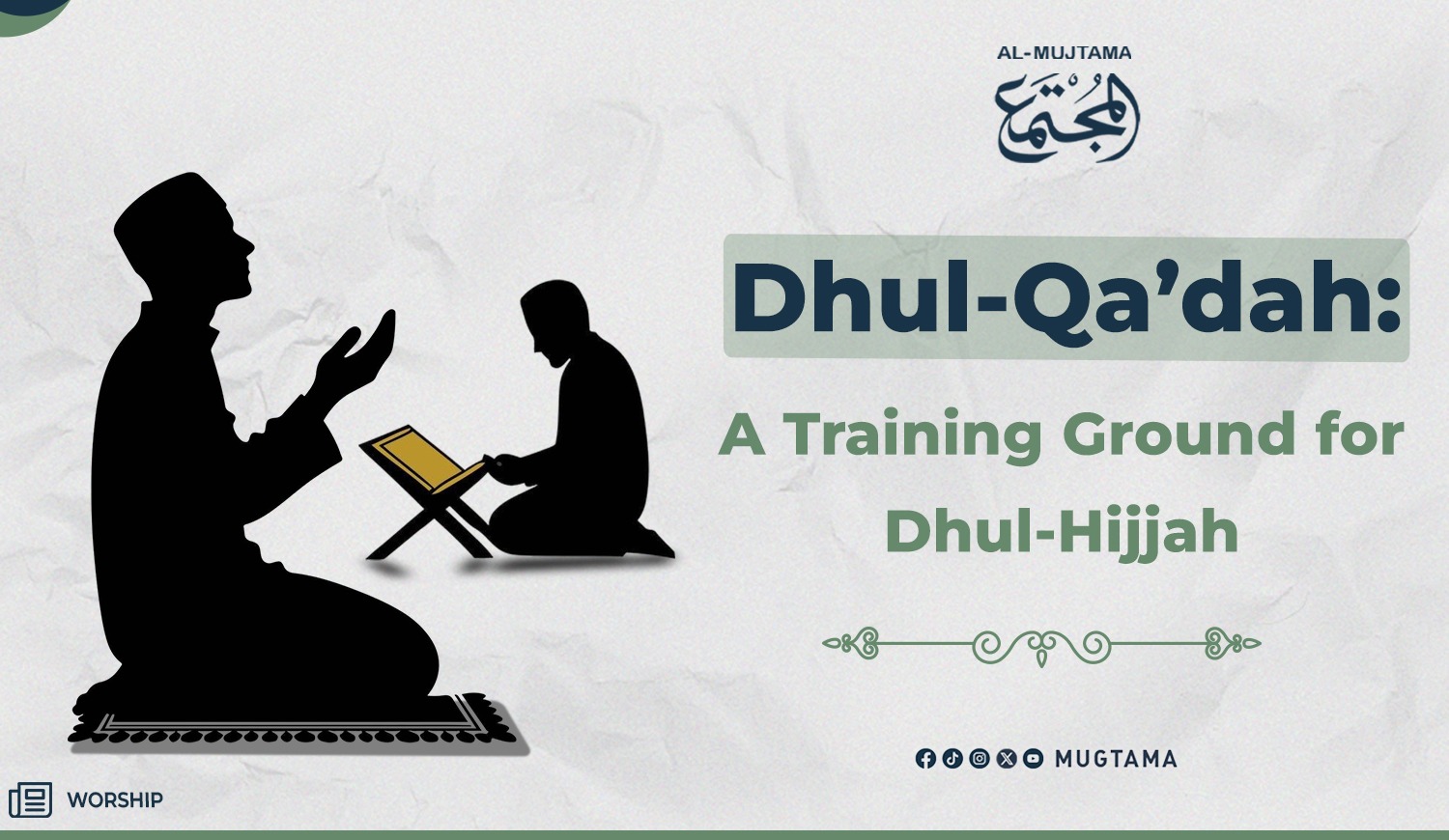Dhul-Qa’dah: A Training Ground for Dhul-Hijjah

Indeed, the state and
character of the Muslim is always to be in constant movement between acts of worship
and transition from one obedience to another, in pursuit of the pleasure of
Allah, His forgiveness, and His approval.
The righteous Salaf and
the first generation of worshippers have always set for us the most remarkable
examples in this regard, so that we find ourselves before a godly generation
from whom the Ummah learns how to expose itself to the divine breezes of its
Lord in order to attain His bliss in the Hereafter and avoid His punishment.
From this perspective,
here is one of the divine seasons that Allah has made as a gift for His
servants, through which they can provision themselves along their journey to
the Hereafter. It is one of the sacred months and
the gateway to the season of Hajj, during which mercies descend from the Lord
of the heavens and the earth.
The Sacred Months: Allah’s Sanctity and Believer’s
Duty
The sacred months
require the Muslim to be in heightened obedience to Allah and furthest from
disobedience. The Muslim should spend his time in humility and humbleness
before his Master, in submission, hope, and reverence, to increase in faith
during the sacred months, seeking forgiveness from his Lord, weeping over what
has passed, and seizing what is near. As we know, the month of Dhul-Qa’dah is
one of the months of Hajj, for Allah said in His Noble Book: “Ḥajj is
[during] well-known months.” (Al-Baqarah: 197)
Thus, Dhul-Qa’dah
serves as an entrance and prelude to Dhul-Hijjah, which contains the best days
of this world. The Prophet ﷺ said: “There is no virtue more
to the liking of Allah in any day than in these days, that is, the first ten
days of Dhu al-Hijjah.” Thus, Dhul-Qa’dah becomes a field of
preparation, a chance for repentance and return, and a valuable opportunity to
increase in righteous deeds and draw closer to Allah, the Lord of the Worlds,
who awaits His sinning, penitent, returning servants.
When Allah
distinguished the human being with intellect over all other creatures in this
universe, it became necessary upon the believer to use his intellect in what
benefits him in the Hereafter and the Day of Reckoning. In this month, hearts
are directed toward preparing for the best days of the world and readying the
soul to receive the ten days of Dhul-Hijjah. And this preparation begins in
Dhul-Qa’dah, a blessed and critical month among the sacred months, which builds
the momentum toward increased righteous deeds.
It was narrated by Abu
Bakrah that the Prophet ﷺ said: “Time has come back to its original state
which it had when Allah created the Heavens and the Earth; the year is twelve
months, four of which are sacred. Three of them are in succession; Dhul-Qa'da,
Dhul-Hijja and Al-Muharram, and (the fourth being) Rajab Mudar (named after the
tribe of Mudar as they used to respect this month) which stands between Jumad
(ath-thani) and Sha'ban.”
Undoubtedly, this specification indicates their status and virtue. For this
reason, the righteous Salaf honored Dhul-Qa’dah and
refrained from wrongdoing in it, magnifying what Allah has magnified.
They understood that
the sacred months demand special restraint and more attention to righteous
deeds.
If we wish to pause at
the words of one of the righteous Salaf to learn from him, then let us enjoy
the saying of Qatadah, who wrote in words of gold a summarized statement that
stands as a great principle, when he said: “Indeed,
wrongdoing in the sacred months is a graver sin and burden than wrongdoing in
others, even though wrongdoing is great in any case. But Allah magnifies from
His command what He wills.”
-------------------------------------------------------------










